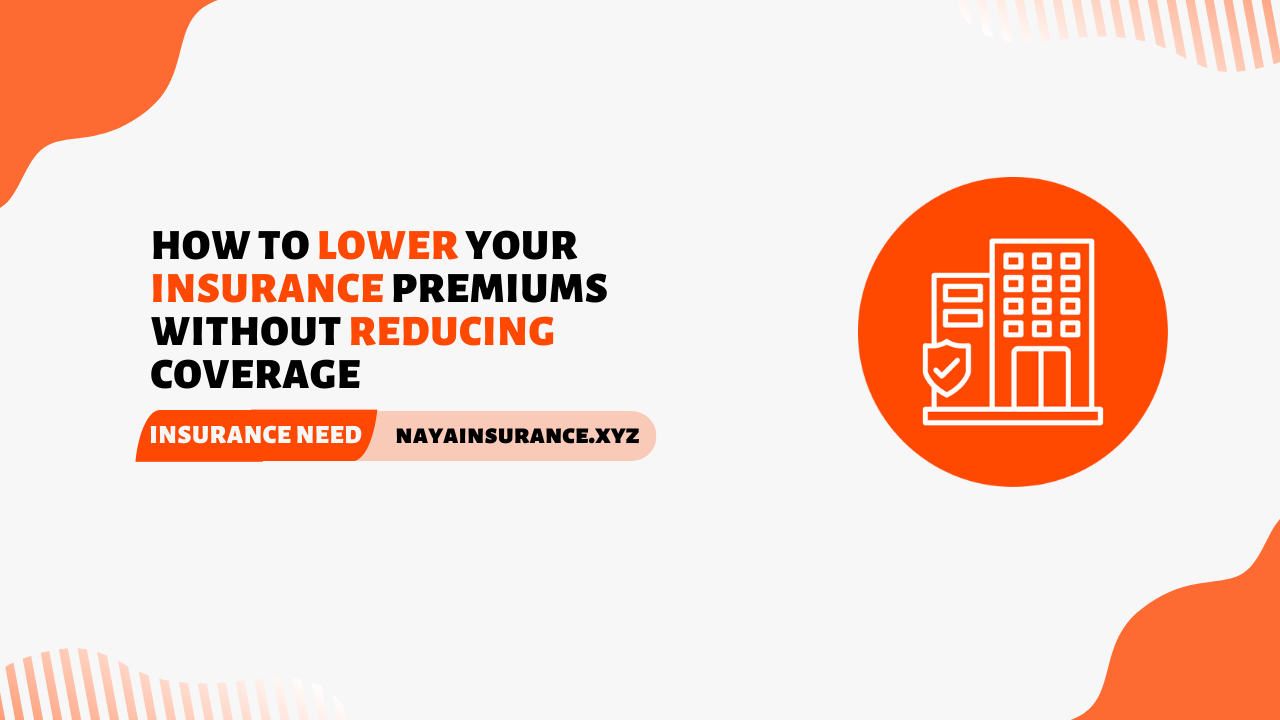Insurance is a crucial part of financial planning, providing peace of mind and protection against unexpected events. However, high insurance premiums can be a burden on your budget. The good news is that there are ways to lower your insurance premiums without reducing your coverage.
In this article, we’ll explore some practical tips to help you save money on your insurance premiums while keeping your coverage intact.
Understanding Insurance Premiums
Before we dive into the tips, let’s understand what insurance premiums are and what factors affect them. Insurance premiums are the amount you pay for your insurance policy, typically on a monthly or annual basis. Several factors influence your premiums, including your age, location, type of coverage, and your personal risk profile.
What Are Insurance Premiums?
Insurance premiums are the amount you pay your insurance company for coverage. They can be billed monthly, quarterly, or annually.
In exchange, the insurer promises to cover specific risks, like accidents, theft, or natural disasters, based on your policy terms.
Factors That Influence Insurance Premiums
Many elements affect your premiums, including:
- Age and Gender: Younger drivers often pay more for auto insurance.
- Location: Living in areas prone to natural disasters can increase home insurance costs.
- Credit Score: A low score may result in higher premiums.
- Claims History: Frequent claims can make insurers see you as a higher risk
Tips to Lower Insurance Premiums
- Shop Around for Better Rates
One of the easiest ways to lower your insurance premiums is to shop around for better rates. Different insurance companies offer different rates, so it’s worth comparing quotes from multiple providers. Use online comparison tools to get a better idea of what’s available.
- Increase Deductibles
Increasing your deductibles can lower your premiums. A deductible is the amount you pay out of pocket before your insurance kicks in. By opting for a higher deductible, you can reduce your premium costs. However, make sure you can afford to pay the higher deductible in case of a claim.
- Bundle Insurance Policies
Many insurance companies offer discounts if you bundle multiple policies with them. For example, you might get a discount if you have both your home and auto insurance with the same company. Check with your insurer to see if they offer any bundling discounts.
- Maintain a Good Credit Score
Your credit score can impact your insurance premiums. Insurers often use credit-based insurance scores to determine your premiums. By maintaining a good credit score, you can qualify for lower rates. Pay your bills on time and keep your credit utilization low to improve your credit score.
- Take Advantage of Discounts
Insurance companies offer various discounts that can help lower your premiums. These discounts might be available for things like being a safe driver, having a security system in your home, or being a member of certain organizations. Ask your insurer about any available discounts and see if you qualify.
- Drive Safely and Maintain a Clean Driving Record
Safe driving habits can lead to lower insurance premiums. Avoid accidents and traffic violations to maintain a clean driving record. Many insurers offer discounts for drivers with no claims or tickets.
- Improve Home Security
Installing security measures in your home, such as alarms, deadbolts, and security cameras, can lower your home insurance premiums. Insurers often offer discounts for homes with enhanced security features.
- Review Coverage Regularly
Regularly review your insurance coverage to ensure you’re not over-insured. Adjust your coverage as needed to match your current needs. You might find that you can reduce your premiums by eliminating unnecessary coverage.
- Consider Usage-Based Insurance
Usage-based insurance programs, such as telematics, monitor your driving habits and offer discounts based on your driving behavior. If you’re a safe driver, you might qualify for lower premiums with a usage-based insurance plan.
- Pay Premiums Annually or Semi-Annually
Some insurers offer discounts for paying your premiums annually or semi-annually instead of monthly. Check with your insurer to see if this option is available and if it can help you save money.
- Avoid Making Small Claims
Filing small claims can lead to higher premiums. Try to handle minor issues out of pocket if possible. Only file a claim when it’s absolutely necessary to avoid potential premium increases.
- Stay with the Same Insurer for Loyalty Discounts
Many insurers offer loyalty discounts to long-term customers. If you’ve been with the same insurer for several years, ask about any loyalty discounts that might be available to you.
- Use Public Transportation
Using public transportation instead of driving can lower your auto insurance premiums. Insurers often offer discounts for low mileage or for drivers who use alternative transportation methods.
- Educate Yourself About Insurance
The more you know about insurance, the better equipped you’ll be to make informed decisions. Educate yourself about different types of coverage, policy options, and ways to save money. This knowledge can help you find the best deals and avoid unnecessary expenses.
Conclusion
Lowering your insurance premiums without reducing your coverage is possible with some effort and research. By following these tips, you can save money on your insurance premiums while still maintaining the protection you need. Take action today to start reducing your insurance costs and enjoy the peace of mind that comes with having adequate coverage.

